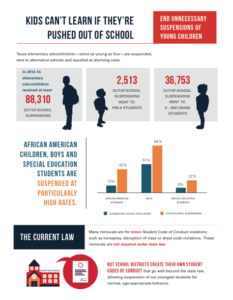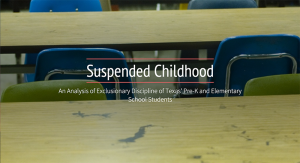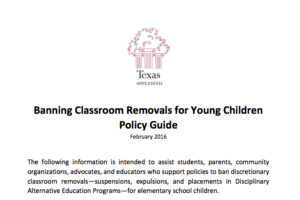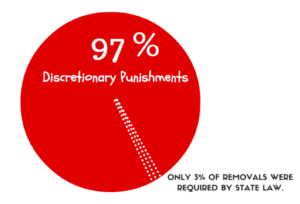
Students in Texas schools can be removed from their regular classrooms with in-school suspensions (ISS), out-of-school suspensions (OSS), Disciplinary Alternative Education Program placements (DAEP), and expulsions. Some of these removals are required by law (for serious behaviors), but research shows that most removals are discretionary, made in response to violations of the district’s Student Codes of Conduct. This means that schools are often choosing to address student behavior by removing students from class, rather than using more effective interventions that model appropriate behavior. According to some districts’ Student Code of Conduct, students can be removed from their classrooms for behavior like “dress code violations,” “horseplay,” and “violating safety rules.”

Even very young students are being removed from their classrooms.
In the 2013-2014 school year, Texas schools issued 88,310 out-of-school suspensions and 193,819 in-school suspensions to young children:
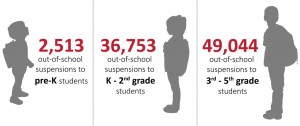 |
Texas Appleseed worked with parents, students, teachers, legislators, and advocacy organizations to end discretionary out-of-school suspensions for PK-2nd graders statewide through House Bill 674. Texas has now joined a growing number of states and districts that have chosen to keep young students in class by limiting classroom removals, including Oregon, California, New Jersey, and Connecticut.
 |
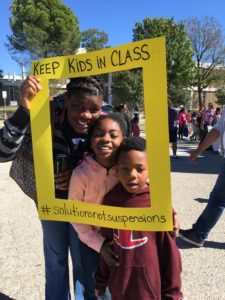 |


